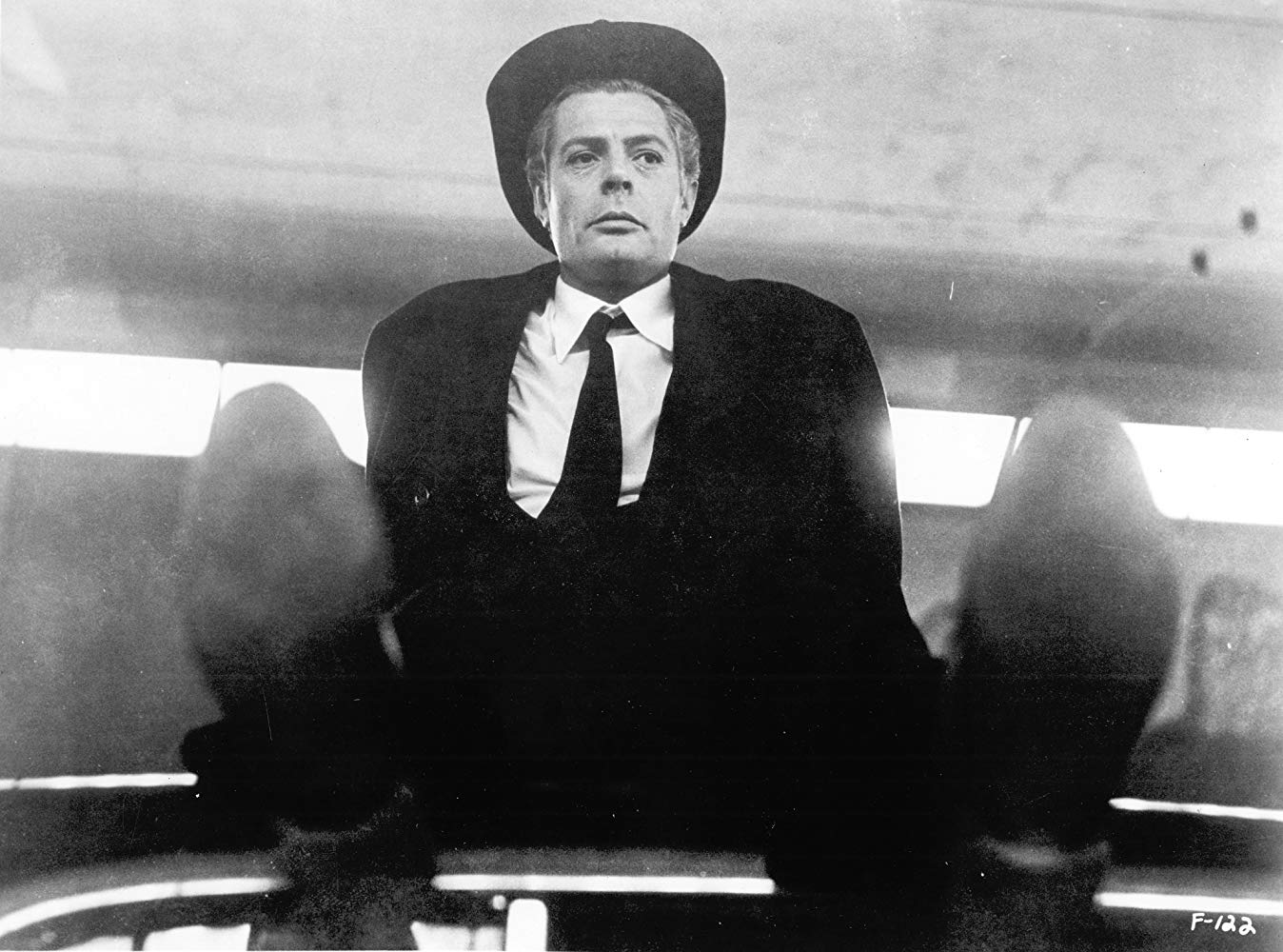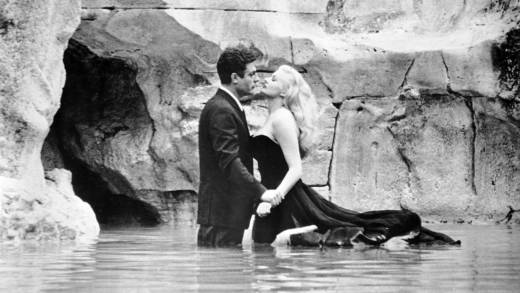Even non-aficionados of screen acting appreciate the total immersion required to deliver the kind of anguished performances that distinguished, say, Robert De Niro and Daniel Day-Lewis. But the ones who make it look easy, who possess a casual nonchalance, who seem to be enjoying themselves like it’s the last day of kindergarten—they’re special. Robert Mitchum, of course, and Cary Grant; Jean Gabin and Alec Guinness. And arguably the greatest of them all, Marcello Mastroianni.
I’ve never seen a stiff or awkward Mastroianni performance, even in roles that were miles from his well-honed urban persona. He was the rare movie star who could play high and low, sophisticated and grungy, insider and outsider. If you want to find the key to any Mastroianni character, watch how he walks, or just moves. In two minutes you know what class the man occupies, his confidence level and what he wants—or wants to avoid.

Upon the actor’s death in 1996, Roger Ebert recalled the time he asked Mastroianni to name his all-time favorite love scene. After reflecting for a few minutes, Mastroianni said, “I like it when Minnie kisses Mickey, and little red hearts go pop-pop-pop in the air.” How can you resist a guy like that?
Dedicated local programmer Amelia Antonucci has assembled five—count ‘em, five—of Mastroianni’s finest performances this Saturday, Sept. 22 on a bill she calls, naturally, Ciao, Marcello! An Homage to Marcello Mastroianni. Vittorio De Sica’s smart, sexy Yesterday, Today and Tomorrow (1963), co-starring a wonderful Sophia Loren, raises the Castro curtain, and Pietro Germi’s biting 1961 farce Divorce Italian Style brings it down.
Fellini and Mastroianni’s ambitious masterworks, 8½ (1963) and La Dolce Vita (1960), get the big-screen treatment they demand and deserve. Sandwiched in between is Ettore Scola’s intimate and moving A Special Day (1977), set in fascist Italy and featuring Mastroianni as a melancholy homosexual who bonds with a conservative housewife (Loren, in top form). Pure pleasure, start to finish.


